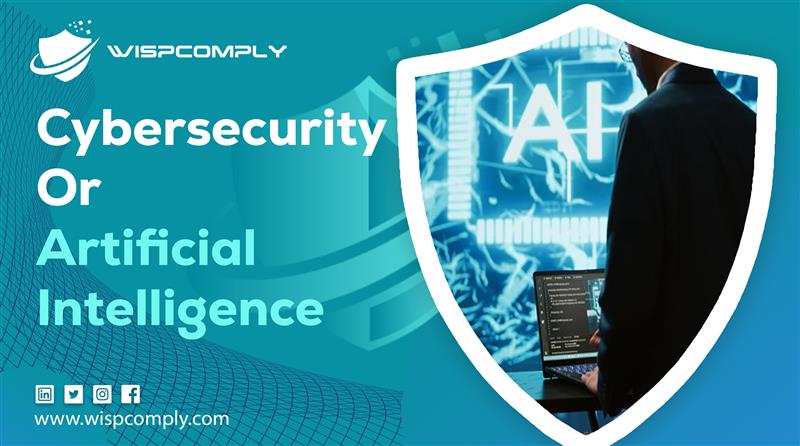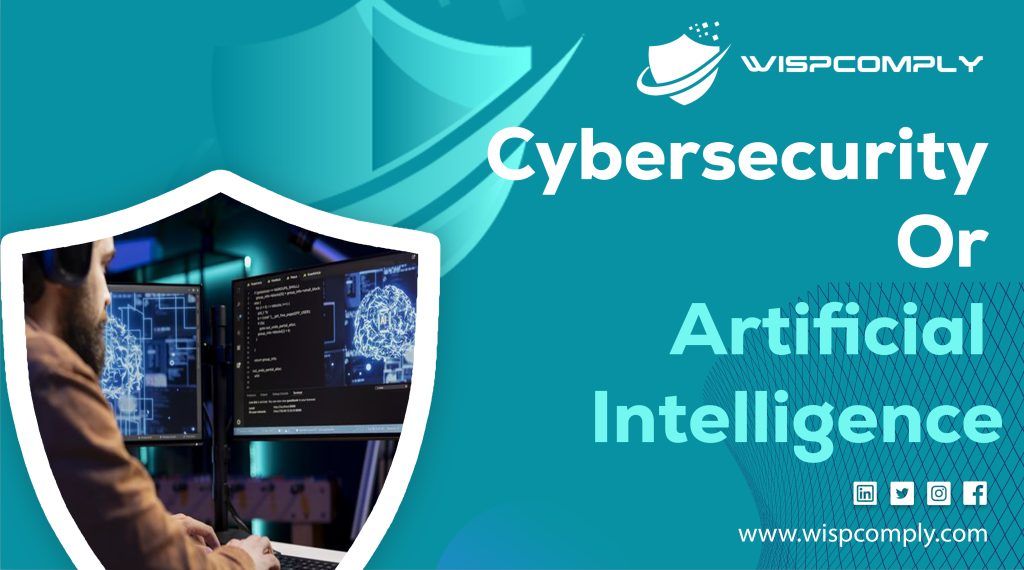
Table of Contents
Which Is Easier? Cybersecurity Or Artificial Intelligence
If you are in the initial stage of entering computer science, then this question should have crossed your mind that which is easier? Cybersecurity or Artificial Intelligence, well it’s the right and responsible question and here we are gonna give you the right answer.
Both fields are great, both offer excellent 6 – figure salaries, and both are in high demand right now. Just stay tuned and read everything carefully to get the answer to your question.
What Is Cyber Security?
Ok so, what is cyber security? In simple terms, those who study cyber security protect the system and network from cyber threats, hackers, malwares and data breaches.
They don’t just stop hackers from hacking Facebook, they protect international banking systems, cloud servers, secret government infrastructure, and even hospital’s health records.
Even in cyber security there are generally two types of people popularly known as:
Red – Team:
These guys attack networks and systems in order to check how vulnerable a system really is
Blue – Team:
These guys protect the networks and systems from any sort of outside and inside threat.
Cybersecurity: Protecting Digital Assets
Let’s look into the digital assets of cybersecurity:
Infrastructure Development
Setting up secure networks, configuring firewalls, VPNs, and intrusion detection systems the digital fortification phase.
Penetration Testing
Ethical hacking to find weaknesses before real attackers do. Yes, you get paid to hack.
Real-Time Monitoring
Constantly watching for suspicious activity. Logs, alerts, anomaly detection it’s digital surveillance at its finest.
Planning Skills
Creating incident response plans, writing security protocols, and educating employees cybersecurity isn’t just technical; it’s strategic.
Core Areas in Cybersecurity
These are the core areas of Cybersecurity:
Network Security
Building and protecting communication highways.
Ethical Hacking
Offensive techniques for defensive purposes.
Threat Intelligence
Studying hacker behavior to predict and prevent attacks.
Cryptography
Securing data through encryption and secure key exchange.
What Is Artificial Intelligence?
Artificial Intelligence (AI) is about making machines smart. AI systems learn, adapt, and make decisions based on massive amounts of data. If you’ve ever used ChatGPT, DeepSeek, Copilot, or even self-driving cars like Tesla you’ve used AI in action.
Artificial Intelligence: Data and Automation
AI isn’t one job — it’s an ecosystem of highly specialized roles.
Data Scientists
They collect, clean, and analyze data. Think of them as the researcher’s feeding brains to the machine.
Machine Learning Developers
They design algorithms that help machines learn from data without explicit programming.
Software Engineers
Build the actual systems and platforms AI runs on.
Business Intelligence Developers
Translate AI’s insights into business strategies. Basically: turn data into dollars.
Core Areas in AI
These are the core areas of AI:
Machine Learning (ML)
Teaching machines to learn from patterns.
Deep Learning
Neural networks, like how your brain processes images and speech.
Robotics
Building AI-powered machines that interact with the physical world.
AI Model Training
Feeding data into systems to improve their decision-making.

Which Is Easy: Cybersecurity or Artificial Intelligence?
So, the main question has arrived, lets find out:
Learning Curve Of Cybersecurity:
- Easier entry for beginners. You can start learning with certifications (like CompTIA Security+ or CEH).
- Less math-heavy.
- Doesn’t require deep programming knowledge right away.
Learning Curve Of Artificial Intelligence:
- Much steeper curve.
- Requires strong math foundations — statistics, linear algebra, calculus.
- Coding is non-negotiable — Python, R, TensorFlow, PyTorch.
- You’ll likely need a CS degree or equivalent knowledge.
Winner for easier start. Cybersecurity.
Required Skills For Cybersecurity Skills:
- Basic networking knowledge
- Threat detection tools (Wireshark, Nmap)
- Risk assessment and incident response
- Optional: Python, Bash scripting
Required Skills For AI Skills:
- Strong in Python, R
- Math (stats, algebra, calculus)
- Data wrangling and preprocessing
- Machine learning frameworks (Scikit-learn, TensorFlow)
- Model evaluation and optimization
Tools and Technologies In Cybersecurity:
- Kali Linux, Wireshark, Metasploit, Splunk, Nessus
- SIEM systems, firewalls, endpoint detection
Tools and Technologies In AI:
- Jupyter Notebook, TensorFlow, Keras, PyTorch, Pandas, NumPy
- Data visualization tools like Matplotlib and Seaborn
Job Market Demand Of Cybersecurity
- Huge demand in finance, healthcare, tech, government
- Shortage of talent globally millions of jobs unfilled
- Roles: Security Analyst, SOC Engineer, Pen Tester, CISO
Job Market Demand Of AI
- Exploding demand in tech, e-commerce, robotics, fintech
- Fewer jobs compared to cybersecurity but more specialized and higher paying
- Roles: ML Engineer, Data Scientist, AI Researcher
Cybersecurity wins for volume of jobs.
Career Growth & Salary
Now is the interesting as most people enter this field because of handsome salaries.
Cybersecurity:
- Entry-level Analyst: $60K – $85K
- Mid-level Pen Tester: $90K – $120K
- Security Architect or CISO: $140K – $200K+
AI:
- Entry-level ML Engineer/Data Scientist: $90K – $120K
- Mid-level AI Developer: $130K – $160K
- Senior Researcher or AI Architect: $180K – $250K+
AI wins in salary, but Cybersecurity wins in accessibility.
Which Should You Choose?
Ask yourself:
- Do you love solving puzzles and working under pressure? Cybersecurity
- Do you enjoy math, data, and research? AI
- Are you looking for a faster career transition? Cybersecurity
- Do you dream of building the next ChatGPT? AI
Bottom Line
Both Cybersecurity and Artificial Intelligence are hot tech careers with massive potential but they’re vastly different.
- Cybersecurity is tactical, responsive, and ideal for critical thinkers who want a job that matters immediately.
- Artificial Intelligence is theoretical, experimental, and suited for deep thinkers ready to spend years building toward innovation.
Whichever you choose, you’re not just chasing a paycheck you’re shaping the future of tech.
FAQ
1: Can I work in both cybersecurity and AI?
Yes! AI is being used in cybersecurity for threat detection and automation.
2: Do I need a degree for either field?
Not always. Cybersecurity often accepts certifications; AI usually requires a degree or solid technical foundation.
3: Which field has more beginner resources?
Cybersecurity. Tons of free resources like TryHackMe, Hack The Box, and Cybrary.
4: Is AI just about coding?
No. It’s also about math, data modeling, and business intelligence.
5: Which is better for remote work?
Both! Remote roles are booming in cybersecurity and AI.
6: Can I freelance in either?
Yes. Freelance AI consultants and pen testers are in demand.
7: Which is more stressful?
Cybersecurity can be intense during attacks. AI stress comes from solving tough data problems and tight deadlines.
8: How long does it take to break into each field?
Cybersecurity: 6 months to 1 year with focused study.
AI: 1.5 to 2+ years if you’re starting from scratch.
8: What if I hate math?
Go for Cybersecurity. AI is math-heavy.
9: What about job stability?
Both are future-proof. But Cybersecurity has more job openings today due to the global skills gap.
